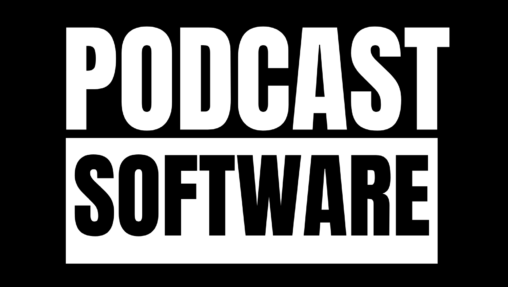Metadata errors can disrupt your podcast’s distribution, visibility, and audience growth. Platforms like Apple Podcasts and Spotify rely on accurate metadata – titles, descriptions, categories, and tags – to index and showcase your podcast. Common mistakes like missing categories, incorrect formatting, or outdated tags can lead to reduced discoverability, delayed updates, or even rejection by platforms.
Key Takeaways:
- Why It Matters: Metadata determines how easily listeners can find your podcast.
- Common Errors: Missing categories, episode numbers in titles, or invalid XML formatting.
- Fixes: Use validation tools (e.g., Apple Podcasts RSS Validator), follow platform-specific guidelines, and maintain regular metadata audits.
- Prevention: Automate checks with hosting tools and stay updated on platform requirements.
Accurate metadata ensures smooth distribution and maximizes your podcast’s reach. Let’s dive deeper into how to fix and prevent these issues.
How To Fix and Optimise Podcast Metadata
Common Metadata Issues in Podcasting
Types of Metadata Errors
Metadata errors come in many forms, and each can affect how your podcast is distributed. For example, adding episode numbers to titles might seem harmless, but it can hurt your podcast’s visibility on certain platforms [1][2].
Another common problem is missing or incomplete metadata. Fields like <description> and <itunes:category> are essential in your RSS feed. If these are left out or not properly filled in, platforms might reject your podcast altogether [2].
Formatting mistakes, such as using special characters incorrectly, can also disrupt your RSS feed. These errors can lead to validation failures, stopping your podcast from being distributed [2].
Here’s a quick look at some common metadata issues:
| Metadata Error | Description | Impact on Distribution |
|---|---|---|
| Incorrect or Missing Metadata | Problems like episode numbers in titles or incomplete <description> or <itunes:category> tags |
Reduced visibility or platform rejection |
| Special Characters | Misuse of special characters | RSS feed validation failures |
| Placeholder Content | Temporary or placeholder text left in descriptions | Delays in distribution and platform rejection |
Understanding these errors makes it easier to fix them and avoid future problems.
Causes of Metadata Errors
Mistakes often happen during manual entry or when podcasters aren’t fully aware of platform-specific requirements. These errors can lead to inconsistencies in metadata and validation failures [2].
Another issue is not keeping up with platform requirements. For instance, using outdated metadata like old categories can hurt your podcast’s visibility and compatibility across different platforms [1].
Managing metadata across multiple platforms adds another layer of difficulty. Each platform has unique needs, and failing to meet them can cause distribution issues [1][2]. By recognizing these challenges, podcasters can address them early to ensure smooth distribution and grow their audience.
Effects of Metadata Errors on Podcast Distribution
Decreased Platform Visibility
Podcast platforms depend on accurate metadata for proper search indexing and categorization. If your metadata is incomplete or incorrect, platforms can’t index or categorize your content the way they should.
| Metadata Issue | Impact |
|---|---|
| Missing Category Tags | Your podcast won’t appear in category browsing on platforms like Apple Podcasts and Spotify. |
| Incorrect XML Format | RSS-based platforms may fail to validate your feed entirely. |
| Incomplete Descriptions | Your podcast becomes less relevant in search results across platforms. |
Delays and Rejections in Distribution
When metadata doesn’t meet platform standards, it can bring the distribution process to a halt. Platforms like Apple Podcasts often reject submissions or delay updates due to issues like invalid feed URLs, missing tags, or poorly formatted episode details [2][6].
These problems not only delay new episodes from reaching your audience but can also stop your podcast from being distributed entirely. Fixing these errors quickly is essential to keep your audience engaged.
Missed Audience Opportunities
Problems with metadata don’t just affect distribution – they also limit your ability to grow your audience. Without consistent and accurate metadata, your podcast becomes harder to find, reducing its reach and engagement potential [1][5].
Here’s what gets affected:
- Visibility across platforms
- Discovery within specific categories
- Listener engagement and retention
- Compatibility with various platforms
To avoid these issues, podcasters should use platform-specific tools to validate metadata regularly and ensure consistency across all channels [2]. Keeping metadata up-to-date can help maintain your podcast’s reach and support audience growth.
sbb-itb-9f49a8d
Fixing Metadata Errors
Using Validation Tools
Apple Podcasts’ RSS Feed Validator is a handy tool for spotting issues like missing category tags, incorrect formatting, or invalid feed URLs. Regularly running your feed through a validator can help you catch problems early, ensuring your content is set up for smooth distribution. It checks key elements like feed structure, category formatting, and character encoding to keep your podcast running seamlessly across platforms.
Once you identify errors, the next step is tackling them head-on.
Correcting Common Mistakes
Start by ensuring your RSS feed’s XML structure is in order. Tags should open and close properly, and the XML declaration must appear right at the beginning. Pay close attention to category names – they need to match platform specifications exactly. Also, clean up any duplicate or placeholder content in your feed [2].
Key areas to double-check:
- Properly formatted and closed tags
- Exact category names as required by platforms
- Unique and polished content throughout the feed
Fixing these common issues is just the beginning. To keep your metadata in top shape, it’s important to follow some smart practices.
Metadata Best Practices
After validating and fixing errors, adopting solid metadata practices can help you avoid future problems. Write clear, engaging descriptions that provide meaningful context about your episodes. Avoid repeating titles or author names in the description field [1][3].
Here are some tips to keep your metadata on point:
- Use specific, targeted tags instead of vague keywords
- Stick to each platform’s guidelines to avoid compatibility issues
- Schedule regular reviews to ensure your metadata stays accurate
- Write descriptions that go beyond basic details to add real value
Preventing Future Metadata Errors
Regular Metadata Maintenance
Keeping your metadata accurate takes consistent effort and routine checks. Set up a monthly audit to spot and fix any issues before they disrupt your podcast’s distribution. During these reviews, double-check that all metadata fields align with platform requirements and are error-free [1].
Focus on these key areas during your audits:
- Episode titles and descriptions
- Category classifications
- Author details
- Technical specifications
While manual reviews are helpful, automated tools can make the process faster and more efficient.
Automated Metadata Tools
Many podcast hosting platforms come with built-in tools to simplify metadata management. For instance, Ausha includes validation features that automatically flag metadata issues based on platform standards [1].
| Tool Type | Primary Function | Key Benefit |
|---|---|---|
| RSS Validators | Checks feed structure | Prevents technical errors |
| Metadata Optimizers | Standardizes formatting | Ensures platform compliance |
| Auto-validation Systems | Detects errors instantly | Saves time on manual checks |
Even with these tools, it’s important to stay aware of changes in platform requirements to ensure your metadata remains compliant.
Staying Informed
Metadata standards can change frequently, so staying updated is essential. Websites like Podcastsoftware.co are great resources for the latest metadata guidelines across various platforms [3].
To stay ahead:
- Subscribe to notifications from podcast platforms and review their technical updates regularly.
- Keep an eye on changes to category structures.
- Test your metadata across platforms to confirm compliance.
Conclusion: Ensuring Metadata Accuracy for Podcast Success
Key Points
Getting your podcast metadata right is crucial for making your show easy to find, ensuring smooth distribution, and reaching the right audience. As Apple explains:
"High-quality metadata can help your show be discovered and grow your audience, as it ultimately determines whether it appears in relevant user searches" [4].
Mistakes in metadata can create serious roadblocks for your podcast:
| Area Affected | Problem | How to Fix It |
|---|---|---|
| Discoverability | Lower search rankings and lost growth opportunities | Regularly check and follow metadata best practices |
| Distribution | Delays or outright rejections | Stick to the specific rules of each platform |
To keep your podcast running smoothly, make metadata management a priority. This means validating your information often and updating it as needed.
Final Advice
As covered earlier in the ‘Fixing Metadata Errors’ section, taking a few proactive steps can save you headaches:
- Validate RSS feeds regularly to ensure they meet platform standards.
- Keep up-to-date with platform rules and adjust your metadata when needed.
- Use automated tools to spot and fix errors before they become a problem.
If you’re looking for tools to simplify metadata management, check out the recommendations on Podcastsoftware.co [3]. By making metadata upkeep a regular habit, you’ll remove technical hurdles and make sure your podcast reaches the audience it’s meant for.
FAQs
What is podcast metadata?
Podcast metadata refers to the information platforms rely on to categorize and display your show, making it easier for listeners to discover. This data plays a key role in ensuring your content reaches the right audience and is properly distributed across platforms.
Here’s a breakdown of important metadata elements and their roles:
| Metadata Element | Purpose | Impact on Distribution |
|---|---|---|
| Title | Identifies the podcast | Affects search visibility and branding |
| Description | Provides episode details | Influences search rankings and listener decisions |
| Category | Places podcast in the right genre | Determines placement in platform directories |
| Tags | Highlights key topics | Improves discoverability in targeted searches |
Incorrectly classifying your podcast can hurt its visibility and make it harder for the right audience to find you. Tools like Apple Podcasts’ RSS feed validator can help you quickly identify and fix metadata problems [2]. Regularly reviewing your metadata should become a standard part of your podcasting workflow [3].
Accurate metadata not only avoids distribution problems but also boosts your podcast’s chances of reaching more listeners. By fine-tuning your metadata, you can sidestep common mistakes and ensure smooth distribution across all major platforms.

